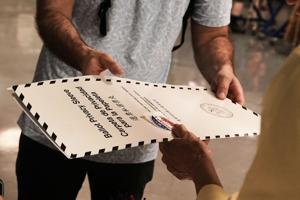
Social media platforms have become a breeding ground for misinformation, with recent claims suggesting that President Donald Trump’s extensive tax bill, passed by the Senate on Tuesday, grants him the power to delay or cancel U.S. elections. A post on the platform X alarmingly states, “The reason the GOP isn’t concerned about the midterms and why they are pushing this bill is because it gives Trump power to cancel elections. If this bill passes — it’s the end of the country. Democracy is over.”
These assertions, however, are unfounded. The tax bill, often referred to by Trump as his “big beautiful bill,” is primarily focused on overhauling the tax code and does not contain provisions that would allow the president to alter election schedules or outcomes. This misinformation highlights the ongoing challenges in combating false narratives in the digital age.
Understanding the Tax Bill
The tax bill in question is a comprehensive reform aimed at reducing corporate tax rates and simplifying individual tax brackets. The legislation, which has been a cornerstone of Trump’s economic agenda, seeks to stimulate economic growth by incentivizing business investments and increasing disposable income for American families.
According to the Congressional Budget Office, the bill is projected to add approximately $1.5 trillion to the national debt over the next decade. Despite its economic implications, the bill does not include any language pertaining to the alteration of election processes.
Addressing the Misinformation
The false claim circulating on social media underscores a broader issue of misinformation in the digital landscape. Experts emphasize the importance of critical evaluation of sources and the verification of information before sharing it widely. Social media platforms have been under scrutiny for their role in the dissemination of false information, prompting calls for enhanced fact-checking measures.
In response to the viral post, several fact-checking organizations have debunked the claim, affirming that the tax bill does not grant any new powers to the president regarding elections. Legal experts also note that the U.S. Constitution and federal laws govern the scheduling and administration of federal elections, which cannot be unilaterally changed by the executive branch.
Expert Opinions on the Matter
Legal scholar Dr. Emily Carter from Georgetown University explains, “The power to set election dates and procedures is enshrined in the Constitution and federal law. Any changes would require an act of Congress, not a provision in a tax bill.”
“The fear of executive overreach is understandable, but in this case, it is misplaced. The legislative process and constitutional safeguards are designed to prevent such unilateral actions,” Carter adds.
Historical Context and Parallels
This isn’t the first time misinformation has sparked public concern over election integrity. Similar claims emerged during previous administrations, often fueled by political tensions and partisan divides. Historically, the U.S. has maintained a robust electoral system, with checks and balances to ensure its integrity and resilience against undue influence.
The current situation reflects a pattern of misinformation that can distort public perception and erode trust in democratic institutions. As the country approaches the midterm elections, the need for accurate information and media literacy becomes increasingly critical.
Looking Ahead
As misinformation continues to circulate, it is crucial for both the public and policymakers to prioritize truth and transparency. The role of social media companies in curbing the spread of false information remains a contentious issue, with ongoing debates about the balance between free speech and the need for accurate information.
Moving forward, experts advocate for increased public awareness and education on identifying credible sources. Meanwhile, legislative efforts to address the spread of misinformation may gain traction as lawmakers seek to protect the integrity of democratic processes.
In conclusion, while the tax bill represents a significant shift in fiscal policy, it does not, and cannot, alter the fundamental democratic process of elections in the United States. The vigilance of both the public and the media in discerning fact from fiction is vital in preserving the nation’s democratic ideals.







